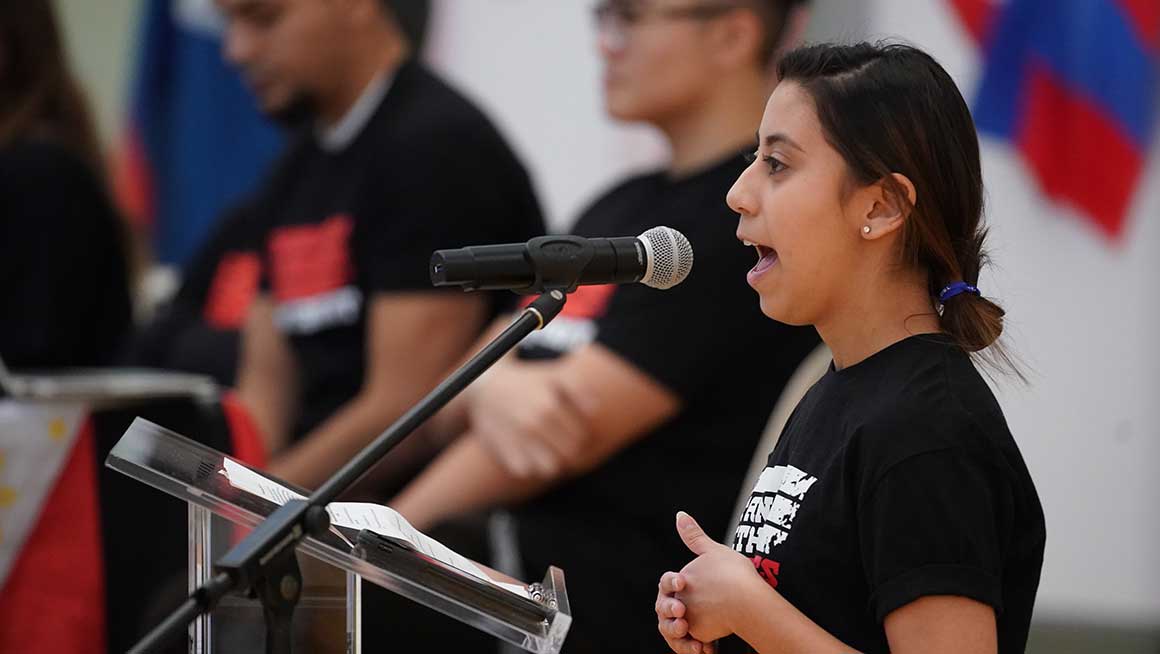Ethnic Studies
Examine the historical, social, political, and cultural experiences of diverse ethnic and racial groups in the U.S. and around the world.

At A Glance
What You'll Learn:
- Study the historical socio-cultural experiences and perspectives of ethnically and racially marginalized communities in the U.S.
What You’ll Do:
- Use critical and creative thinking to solve problems.
- Demonstrate the ability to interact meaningfully and build effective relationships with individuals and groups through community projects.
Where You'll Go
- Director of Diversity, Equity and Inclusion, Lawyer, Teacher, Counselor, Journalist, Social Worker, and Human Resource Manager
- Prestigious graduate schools to further your career preparation.
Program Level: Undergraduate
College/School: Interdisciplinary
Program Overview
The interdisciplinary Ethnic Studies concentration provides students with a deep understanding of the complexities of ethnicity, race, culture, and identity within the broader context of inclusion and diversity.
Global and Comparative Perspectives
The Ethnic Studies concentration emphasizes global and comparative perspectives to examine the experiences of ethnic and racial groups in diverse geographical and historical contexts. Courses explore the intersections of ethnicity and race with other dimensions of identity, such as gender, class, religion, nationality, and sexuality, to provide students with a holistic understanding of the complexities of human diversity. Students engage with case studies and comparative analyses to deepen their appreciation for the diversity of human experiences and the interconnectedness of global communities.
Social Justice and Advocacy
Central to the Ethnic Studies concentration is a commitment to social justice, equity, and advocacy for marginalized communities. Classwork and discussions examine issues such as systemic racism, inequality, discrimination, cultural appropriation, and resistance movements, empowering students to become agents of change and advocates for social justice.